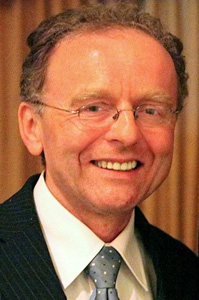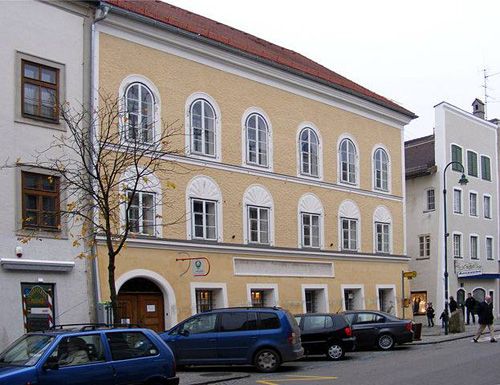
Andreas Maislinger
One of the most infamous residences in the world is currently at the center of an intense worldwide debate. Austrian historian Andreas Maislinger is gathering support for his own idea that would transform it into a place of learning and positive action.
Maislinger is the founder of the Braunau Contemporary History Days and the Austrian Holocaust Memorial Service, which sends young Austrians around the world to work for a year at Holocaust museums and institutions (including the USC Shoah Foundation) as an alternative to Austria’s compulsory military service.
The residence in question is Adolf Hitler’s former home, located in Braunau am Inn, Austria. Hitler was born there in 1889 and his private secretary bought it in 1938. Though it had been used as a museum and even a charitable organization for disabled people since the war, today it is mostly empty and rented by the Austrian Interior Ministry from the owner, a local woman. Johannes Waidbacher, Braunau’s mayor, set off the debate over what to do with the building when he suggested in an interview that it should be turned into apartments.
Not if Maislinger has anything to do with it. His idea would rename the building the “House of Responsibility.”
The House of Responsibility would be dedicated to commemorating and researching the past on the ground floor, making a difference today on the first floor, and planning for a better future on the second floor, Maislinger said. Students and young people from all over the world would have the opportunity to come to the house and work on social service projects; research would focus on crimes against humanity, the national socialists of World War II, and the liberators of the concentration camps.
“Because of the liberation, my whole life I could live in a free country,” Maislinger said. “For me it’s very important to say thank you because we never really say thank you to the American liberators. This is maybe the most important thing for me in the house.”

Another idea being considered for the House of Responsibility is to include testimonies of Holocaust survivors and witnesses from the Visual History Archive.
In his testimony, German –American soldier Ralph Leeser, who liberated Buchenwald, describes going to Hitler’s home after liberation and noticing many books on Judaism and in Yiddish. He remembers throwing a bust of Hitler out the window and taking several books, which he later donated to a Holocaust museum.
While Maislinger has gathered many supporters for the project, including Schindler’s List producer and Holocaust survivor Branko Lustig and Abraham Foxman, the national director of the Anti-Defamation League, he acknowledges that it will take time before the government makes a decision. However, support from influential people around the world will help speed up the process, he said.
But just like the Austrian Holocaust Memorial Service, which is engaging young Austrians in Holocaust remembrance all over the world, Maislinger believes the house should be utilized by students – the leaders of the future – and is hopeful that his vision will become a reality.
“Young people should have the chance to think about their future – how the world will look in 20 or 30 years?” Maislinger said. “Young people should have the chance to think about what they can do to live in if not a better world, at least not a worse world, because there are so many dangers.”